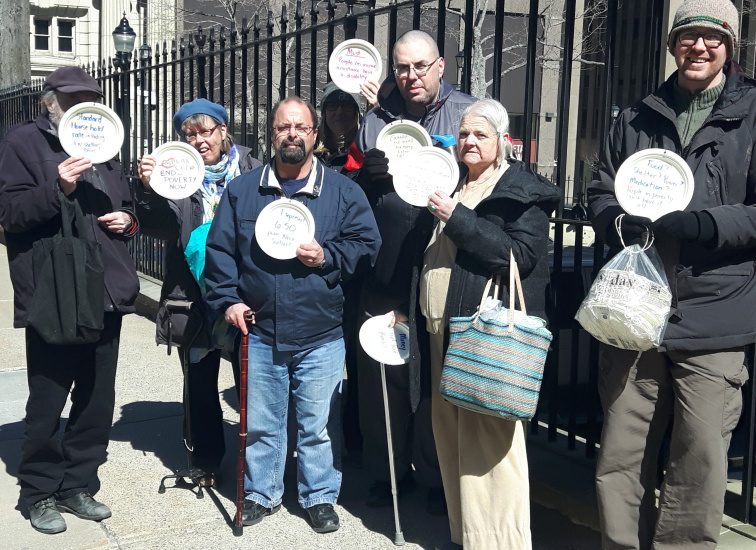
KJIPUKTUK (Halifax) – People in my community feel strongly that the government and opposition parties must take a serious look at some issues that matter to them as the House begins sitting on February 20.
As we all know, since this current Liberal government took office in 2013, we have been hearing time and time again about a so called ESIA transformation taking place. We have been hearing about this over the past 7 years, with only very little work toward actual change to show for it.
Don’t get me wrong. Child support clawbacks were stopped, people in the city all received bus passes, and we keep more of our earnings if we are able to work.
However, as I wrote earlier, here are some very important things that would really improve our lives and that we are still waiting for:
We want income assistance rates to go up by 15% retroactively for 2018, and a longer term we want to have the rates meet market basket measures by 2020, which is more or less how much it takes to live a very modest but dignified life.”
At this time social assistance clients need a note from their doctor to say they need a phone for medical reasons in order to get the $35.00 for the telephone allowance. There are a lot of people out there who want to work at least part time. People need a telephone when it comes to searching for employment.
We have a system in Nova Scotia where a caseworker is required to know too much of a client’s business. The clients experience this when they attend their mandatory annual reviews. At annual reviews the clients are put in positions where they feel uncomfortable and stigmatized by their caseworkers. The question here is, why do we need a system where there is so much bureaucratic nonsense in order for a client to qualify for income assistance allowances and special needs?
This bureaucratic nonsense also includes what a client has to go through in order to qualify for a special diet allowance. The policy manual reinforces that bureaucratic nonsense. It also puts unfair expectations onto a client’s family doctor.
Community Services tells me that as part of their future plans it wants to look at social inclusion. People I talk to in my community worry that resolving and addressing issues of social inclusion is going to go beyond Community Services. The department of Health and Wellness and the Justice Department also must get involved.
I believe that income assistance recipients sometimes need refresher training on what is appropriate behaviour in maintaining a good and healthy friendship and maintaining social contacts in the community.
It is the community’s hope that affordable housing is also on the list of what the government will be looking at during this upcoming sitting.
For more on why see:
Kendall Worth: Low vacancy rate causes rents and evictions to increase in Dartmouth North, or this one, Kendall Worth: The need for rent control
Being able to afford rent plays a big part in being able to live in your community. Even though the standard household rate no longer mentions the shelter allowance, still when you look at it closely nothing has changed.
Let’s say under this new standard household rate your rent is $535, and for a single person with a disability you receive $850.
$850 – $535 = $315.
Then you have to consider that most likely power is not included in what you are paying for rent. So your power bill and your phone bill means you got even less for food after rent and bills are paid.
Not all income assistance recipients are lucky enough to make their way through the bureaucratic nonsense and systematic problems to get approved for those special needs allowances like a phone.
Finally, we hear that Steven MacNeil has been saying that in this coming budget he is announcing corporate tax cuts. People in the community believe that this should create lower rents. After all, the rental companies are paying those corporate taxes.
But I would not be surprised if rents do not decrease as a result.
Kendall Worth is an award-winning anti-poverty activist who lives with disabilities and tries to make ends meet on income assistance.
With a special thanks to our generous donors who make publication of the Nova Scotia Advocate possible.
Subscribe to the Nova Scotia Advocate weekly digest and never miss an article again. It’s free!



